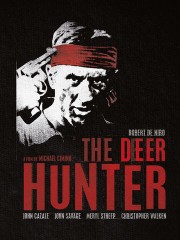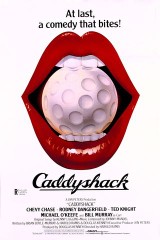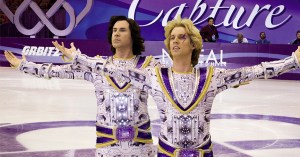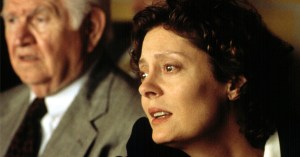Hugh Jackman’s Five Favorite Films
The accomplished X-Men fan favorite and star of this week's The Front Runner on Indiana Jones, political journalism, and the future of his Wolverine.

(Photo by Matt Winkelmeyer/Getty Images)
It would be easy — and egregiously dismissive — to say that the X-Men character Wolverine alone made Hugh Jackman the star that he is today. Plenty of actors land big roles early in their careers, only to squander the opportunity or fade from memory soon after. From the outset, it was clear that Jackman possessed the kind of onscreen charisma not only to play the gruff hero but also to break off and lead a solo franchise of his own, culminating in a swan song for the character that earned some of the best reviews of any film in 2017, period.
Of course, Jackman is more than just the iconic mutant who helped raise his profile. He has starred in films in a wide variety of genres and worked with several acclaimed directors to establish himself as one of the more versatile leading men working today. This week, for example, he appears in multiple Oscar-nominated director Jason Reitman’s political drama The Front Runner, in which he plays former U.S. presidential candidate Gary Hart, whose 1988 campaign was derailed by reports of an extramarital affair, and it ranks as one of Jackman’s most challenging roles to date. The film is currently in select theaters in New York and Los Angeles before it expands on November 21, and ahead of its release, Jackman chatted with RT to give us his Five Favorite Films, then talked about the new film, the evolution of political journalism, and whether or not he thinks his Wolverine might make a comeback.
Ryan Fujitani for Rotten Tomatoes: You have this reputation for being one of the nicest people in Hollywood, but that’s gotta be tiring, isn’t it? Is it difficult for you, just having everyone sort of expect you to be the most charming person they’ve ever met?
Hugh Jackman: [laughs] No. What you’ve got to understand is most people assume people in movies are dicks, and arrogant, and expect everything. And I actually think I’m being a slightly watered down version of the way I was brought up, as in my parents would expect me to be nicer, more polite, more appreciative, never allow anyone to do anything for me. So I kind of get away with it, I think, in a way. People go, “Wow.” I always feel what they’re saying is, “For a movie star, you’re kind of nice.”
RT: It’s not, “He’s a nice guy.” It’s, “He’s a nice guy for a movie star.”
Jackman: “For a movie star.” Exactly. Like, people say to me, “Oh, that was so sweet. You remembered my name.” And I’m just like, “You just told me three seconds ago.” You know? Anyway…
If you’re a parent, you go up and you say, “Oh, hello, Mrs. Lacey.” And they say, “Oh, you remembered my name.” And it’s like, “Yeah. I’m looking after your stinking kid all this time. Of course you remember my name.”
RT: So that works to your advantage.
Jackman: Oh, totally. Expectations are low. Easy to deliver.
RT: Well, so far, you’re a pretty nice guy for an actor.
Jackman: Right, thanks man. For an actor. [laughs]
RT: So, let’s talk about The Front Runner. Obviously the Gary Hart story was a big one here in the States when it happened, but I’m wondering how much of it you were aware of before you took on the role.
Jackman: Oh, I really was not aware. In fact, I was like most people. Most people would say to me, “Oh, yeah, Gary Hart. Monkey business? What was the name?” And, “Didn’t he tell them to follow him around?” And it would usually happen in that order. I was probably… I would know even less than that. I didn’t know the “follow me around.” I think I’d heard of Monkey Business.
I think what’s really interesting about this film — Jason’s highlighted something that’s been pretty much forgotten. It feels like a blip in terms of political history, right? But actually, when you look at that moment, you really get an idea of how and why we got to where we are today. And I think that’s what makes Jason such a great storyteller.
And also, I’m proud of the way he kind of treats everybody in the movie, and every character, and someone who might’ve been, “What was her name, that girl on the boat?” You know? But by the end, you really feel and understand and empathize with her story as much as the woman at the Washington Post, or the campaign worker who has to take care of Donna. You see it from so many perspectives.
RT: And the actors playing all of those characters. It’s a fantastic cast you’re working with in this film.
Jackman: Oh yeah, a phenomenal cast. And Jason had this technique which was really interesting. He really wanted a very believable atmosphere. He used to grab extras. So I’d be doing a scene, and an extra would be… He would just say, “I want you to go and interrupt, and I want you to go and do this,” and so they would just come in and interrupt. We’d have to deal with it.
When we did the press conference [scene], we didn’t know what order the questions were going to come in. They were just sort of being fired. He just said, “Can you see that?” He would point — they were all in there, and I wasn’t allowed to go in. We’re peeking through the door, and he says, “Can you see that white cross on the floor?” And I said, “Yeah.” And he goes, “If you stand around there, and go for it.” I’m like, “Like now? Like go?” And he goes, “Yeah.” So we just sort of walked in. So it was really interesting what he did.
RT: The film paints a complex portrait of Gary Hart, because it builds him up as this superstar candidate, but it doesn’t shy away from his faults. It must have been a challenge to portray someone who is so charismatic and charming and seemingly upstanding, but also has these big gaping flaws, because you had to show how he was so likable at the same time that he was, in a sense, morally compromised. How did you strike that balance?
Jackman: It was a definite challenge for me on many levels because I’m more of an open book. We’ve only spoken for ten minutes. A lot of the characters I play have their heart beating out of their chest, and this is someone who will allow you close. He is very charismatic and enigmatic — some people called him elusive. He was hard to get to know. He would let you get close to a point, but then not, and he never really felt comfortable personally letting everybody in. It just wasn’t his personality, nor did he think that was important for the job he was going for, and thought it was distracting.
He thought about things very, very differently than any other politician, and this is really the turning point. After this point, it’s very clear to every political candidate that there is your personality, your ability or willingness to entertain, to be an entertainer, is part of the process. There was a reason why, I think, Clinton played saxophone on Arsenio Hall, whereas that wasn’t happening before. Things certainly did change in this era, and I think the challenge for me was having the restraint to not let people in fully, because that is my instinct.
Of course, I had to have that inner life, and you needed to see that, but there’s moments of kindness, which are actually true. Like on the plane to the reporter who was going through that fright with a fear of flying.
RT: That was a real thing that happened?
Jackman: Yeah, that actually happened. Yeah, you know, he would hand books to people, and he would buy drinks for the press. But, at the same time, you never really fully felt that you got to know every part of him, and that was the challenge. It was a big challenge for me, and I really relied and leaned heavily on Jason for that.
RT: You touched on this already, but while this film is certainly about the rise and fall of Gary Hart, it’s clearly also about how journalism and especially political journalism changed at the time, particularly with respect to the privacy of candidates running for office. I think the film lets the audience decide where they stand, between “the press should be free” and “candidates deserve their privacy.” Where do you stand on that?
Jackman: Look, it’s a far more important job than probably anything else out there, so I do understand that people need to feel like they know the character of all these candidates. I learned this — this is a new world — prior to 1970, there was no primary system. So now you’re expecting everyone around the country to judge 12 people that are running for a Republican ticket. So there is a responsibility of the press to get to know these people, and to let us know. You don’t have time to do it.
I think the question more for rather than putting it all on the press, and it’s the press’s job, and have they gone too far or not, I think if we as voters or citizens, whichever country we’re at, have a very strong sense of what is important to us, what do we need to know, because that is different for everybody. And I don’t judge it, the film doesn’t judge it. Some people will judge a person on how they are in their marriage, you know? I’m not, except for the person I’m married to, but that’s not me. But I do judge someone’s character. I want to know that they are smart enough to see problems that I can’t see coming, and that they have the conviction to follow through on what they say they’re going to do. So that is a character judgment.
So on some level, I do want to know them. I would like that to be uncovered. I don’t need to know if they wear boxers or briefs, or their dog’s name, whether they played piano in school, or what their girlfriend’s name is, or whether they smoke marijuana. I don’t really care about that. But that’s different for everybody.
RT: Before we go, I feel like I have to ask this. There’s obviously been a lot of talk about the whole Disney-Fox deal and the fact that Bob Iger confirmed that Marvel’s Kevin Feige will be the new caretaker of the X-Men franchise. If — and I know this is a big if — at some point, if they figure out a way to incorporate the X-Men into the existing Marvel Cinematic Universe, and they come knocking on your door, would you be willing to come back in some capacity, whether big or small?
Jackman: Now, in terms of opening windows, you just left a crack so small. Like, “Would you like to just smell what is going on in the room?” I love what you did there.
For many, many years, I often thought how cool would it be to have Wolverine in a scene with Iron Man, or Hulk, particularly Hulk, and all of that. I totally get that. It frustrated me that that was not… And I, for many years, thought that that was an impossibility. But, mate, I think the ship has sailed.
You know, when you get into a party, you leave the party, all is good. You’re in the cab. You’re just about to get home, and someone goes, “You’ve got to come back, dude. Such-and-such has turned up,” and you go, “You know what? I’m going to bed.”
The Front Runner opens in limited release on November 7.









